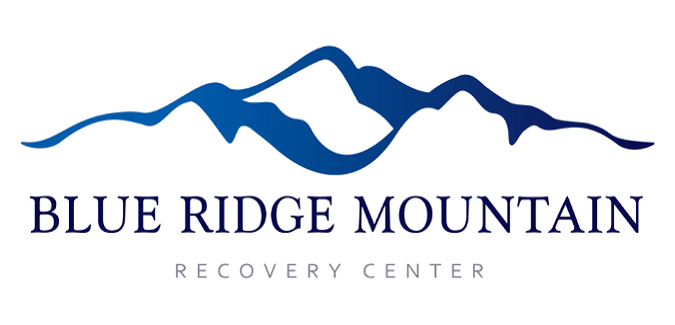
Contributor: Staff at Blue Ridge Mountain Recovery Center
Living with an addiction can impact all areas of a person’s life. From trying to maintain or repair relationships with loved ones to managing cravings, developing coping strategies, and avoiding relapse, the recovery process is a tumultuous time that requires an incredible amount of emotional fortitude.
Often, one of the furthest things from a person’s mind during addiction recovery is returning to work. But after navigating some of the most immediate hurdles of recovery — usually, those that are literally closest to home — many people are ready for the challenge of resuming their career and bringing in a steady paycheck.
Unfortunately, the stigma that surrounds substance use in the eyes of so many people extends to the workplace. For someone who is in recovery, that can make a return to their place of employment even more of an uphill battle.
The staggering numbers that support an addiction stigma in the workplace
According to the 2018 National Survey on Drug Use and Health, approximately 70% of all adults who have a substance use disorder are employed. Nearly 9% of all employed adults (or 13.6 million workers) currently have a substance use disorder, while a relatively equal number (13.4 million) say that they are in recovery [1].
Call Blue Ridge Mountain Recovery Center for Help 855-409-5590
One recent study, published by nonprofit Shatterproof and insurance company The Hartford, found that 75.2% of the public does not believe that a person who has a substance use disorder has a chronic illness such as diabetes, arthritis, or heart disease. More than half of respondents (53%) said that they believe that addiction is caused by “bad character” [2].
That evidence of stigma has pretty severe consequences. In the same survey, just 10% of people who have an addiction said that they sought care, while 46% said that these stigmas make them feel ashamed of their troubles.
Even for those who seek professional help, the survey found that potential colleagues’ attitudes are not exactly welcoming. The survey revealed that 30% of people wouldn’t want to work with someone who is in recovery, and 34% would be unwilling to hire a person who is currently in treatment for a substance use disorder. These minimal differences suggest that even someone who is well into their recovery faces similar levels of judgment regardless of when they stopped using.
Amid those troubling numbers, there is one statistic that provides at least a small amount of hope for those whose lives have been impacted by addiction: Eighty-seven percent of respondents feel that employers should provide opportunities to seek treatment while retaining their job.
The ways employers can help those who are in addiction recovery
In many ways, the fact that just 1 in 10 people who are struggling with a substance use disorder pursue professional treatment tells you all you need to know about how rampant the stigma of addiction runs.
In the workforce, many employees struggle silently, and employers don’t realize that there are steps they could be taking to help. Workplaces should be creating professional environments that are proactive in preventing substance abuse, reducing stigma, and encouraging treatment and sustained recovery for those in need.
 The National Institute for Occupational Safety and Health (NIOSH), a branch of the Centers for Disease Control and Prevention (CDC), promotes the idea of Workplace Supported Recovery (WSR) programs.
The National Institute for Occupational Safety and Health (NIOSH), a branch of the Centers for Disease Control and Prevention (CDC), promotes the idea of Workplace Supported Recovery (WSR) programs.
In these environments, employers use evidence-based policies to reduce multiple risk factors of addiction. They also take steps to help workers who are already living with a substance use disorder find the care they need and provide assistance in recovery, which may include staying at work or returning to work [3].
Elements of a successful WSR include:
- Preventing work-related injuries that could lead to substance misuse
- Decreasing difficult working conditions or demands that may result in ongoing pain
- Promoting the use of alternatives to opioids for pain management
- Providing information about and easy access to care for substance use disorders, if necessary
- Supporting second-chance employment
- Offering peer assistance and/or coaching to bolster the social supports available to those in recovery
- Promoting a culture free of stigma and supportive of those in recovery
In addition to formulating an environment of acceptance and inclusion for employees, a WSR can yield many benefits for employers as well. It can decrease turnover, lower healthcare costs, and create a positive, welcoming culture for all employees within a company.
How can employers begin to put these pieces for addiction recovery in place?
1. Provide training and education. By working with trusted experts who understand how substance use and workplace environments sometimes overlap, companies can educate their leaders on how to treat those who are struggling and how to avoid stigma.
2. Take a deep look at your culture. Is a company hosting happy hours or other activities that involve and implicitly promote the use of alcohol? Try to reimagine how these team-building events can revolve around something outside of drinking.
3. Walk the walk. Policies that promote help for individuals who have substance use disorders are a start, but make sure that employees know how to act on them. Give workers the same resources you give your leaders, and ensure that they know that they’ll be supported if and when they seek help.
Stigma and bias aren’t things that will disappear overnight. But with the right level of education, understanding, and the buy-in from the top down of eradicating dangerous misconceptions, workplaces can help their employees who are struggling feel like they have an honest chance of getting the help they need.
References:
[1] 2018 national survey of drug use and health (NSDUH) release. (n.d.). Substance Abuse and Mental Health Services Administration. https://www.samhsa.gov/data/release/2018-national-survey-drug-use-and-health-nsduh-releases.
[2] Shatterproof addiction stigma index. (October 2021). Shatterproof and The Hartford. https://www.shatterproof.org/sites/default/files/2021-10/Shatterproof%20Addiction%20Stigma%20Index%202021%20Report.pdf.
[3] Workplace supported recovery program. (2020, July 27). National Institute for Occupational Safety and Health. https://www.cdc.gov/niosh/topics/opioids/wsrp/default.html.
About Our Contributor:
 Blue Ridge Mountain Recovery Center is a premier provider of residential addiction treatment and detoxification services for adults. Located in Ball Ground, Georgia, just an hour north of Atlanta, the facility is set on 40 acres of wooded countryside in the Blue Ridge Mountains, providing a serene and peaceful backdrop to help clients who are struggling with substance use disorders and co-occurring mental health concerns. Blue Ridge Mountain Recovery Center offers specialty services, such as a family program, a relapse recovery program, and a treatment track designed for veterans. To learn more, visit www.blueridgemountainrecovery.com.
Blue Ridge Mountain Recovery Center is a premier provider of residential addiction treatment and detoxification services for adults. Located in Ball Ground, Georgia, just an hour north of Atlanta, the facility is set on 40 acres of wooded countryside in the Blue Ridge Mountains, providing a serene and peaceful backdrop to help clients who are struggling with substance use disorders and co-occurring mental health concerns. Blue Ridge Mountain Recovery Center offers specialty services, such as a family program, a relapse recovery program, and a treatment track designed for veterans. To learn more, visit www.blueridgemountainrecovery.com.
The opinions and views of our guest contributors are shared to provide a broad perspective of addictions. These are not necessarily the views of Addiction Hope, but an effort to offer a discussion of various issues by different concerned individuals.
We at Addiction Hope understand that addictions result from multiple physical, emotional, environmental, and genetic factors. If you or a loved one are suffering from an addiction, please know that there is hope for you, and seek immediate professional help.
Published on January 17, 2022
Reviewed by Jacquelyn Ekern, MS, LPC on January 17, 2022
Published on AddictionHope.com
